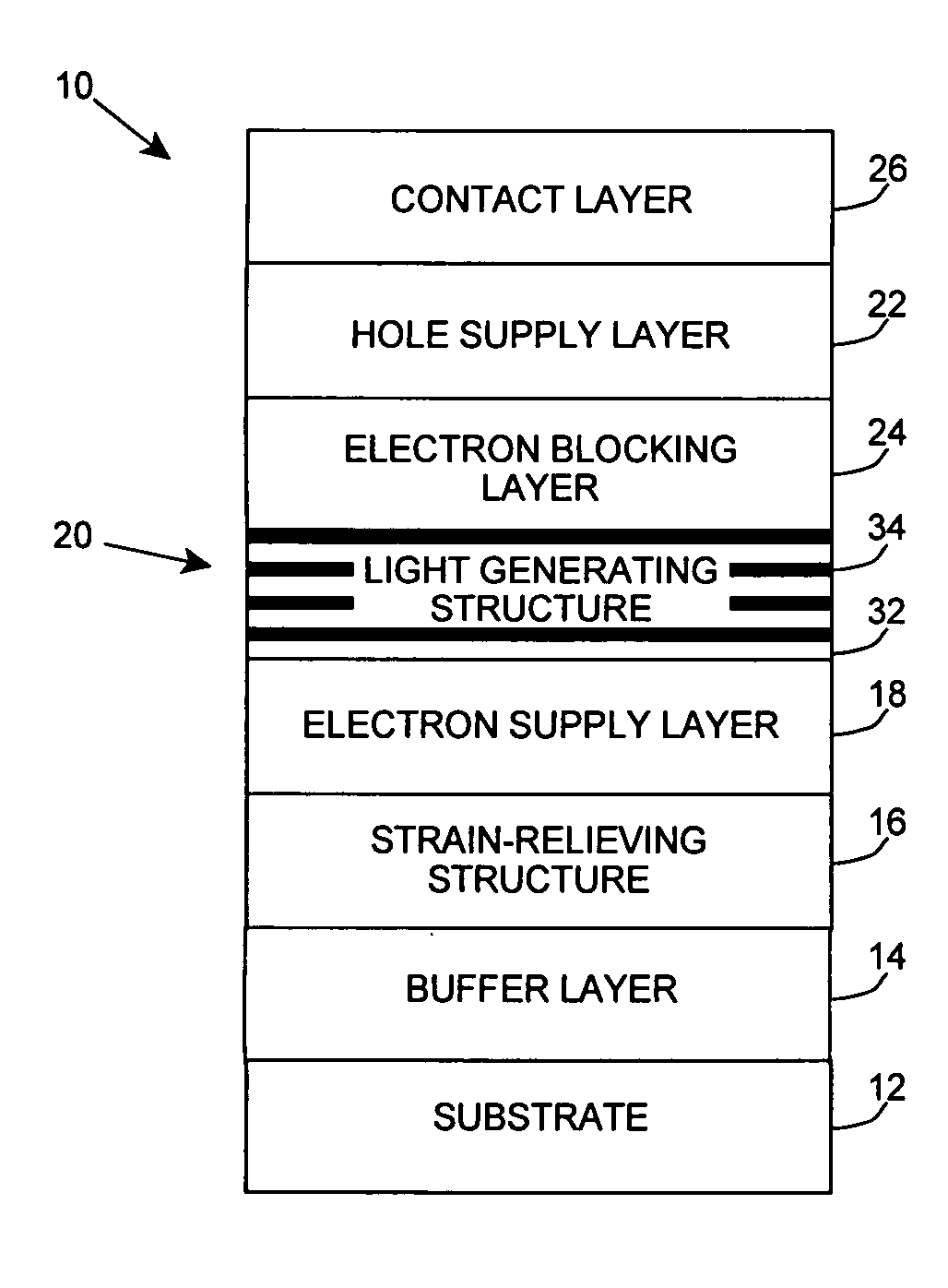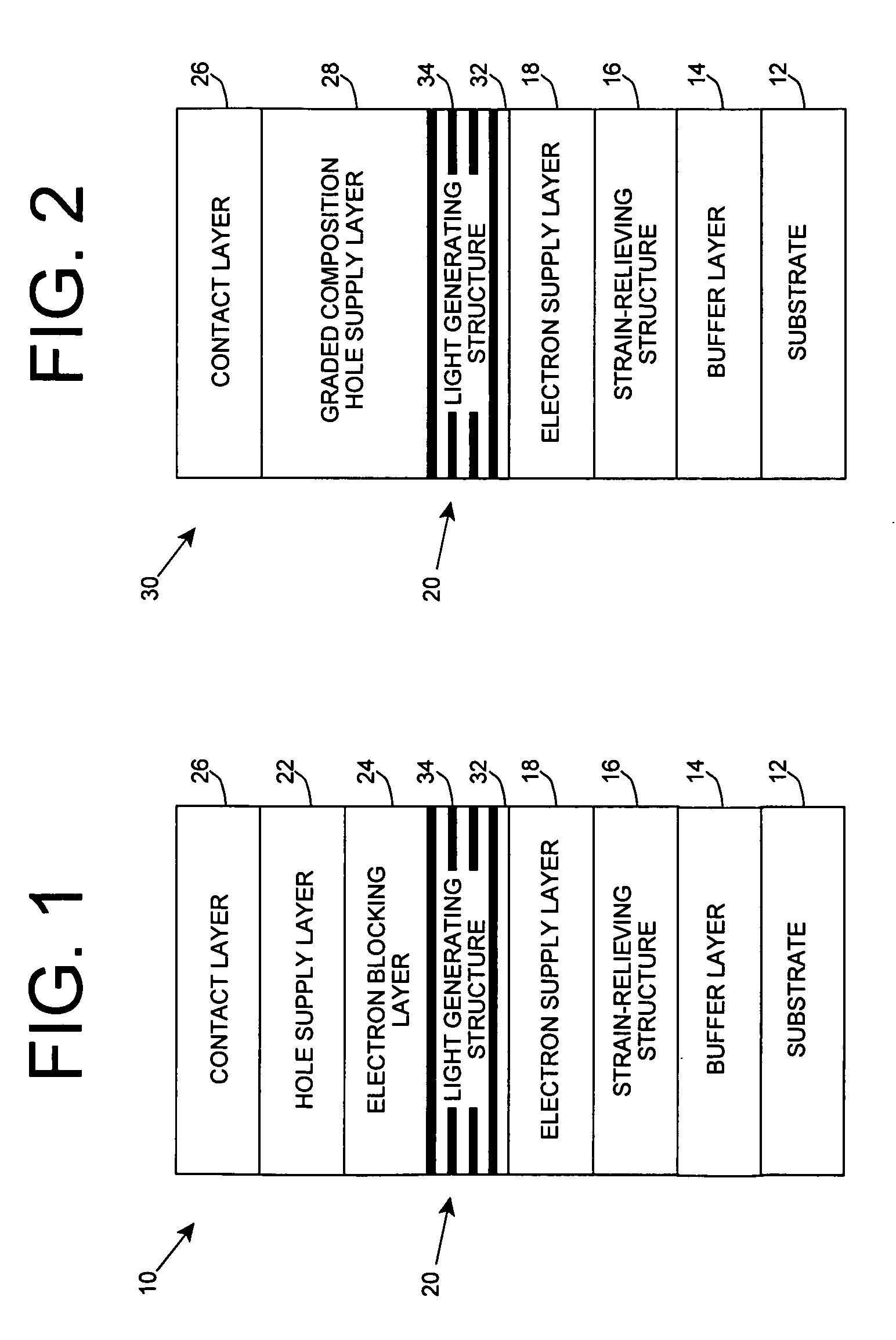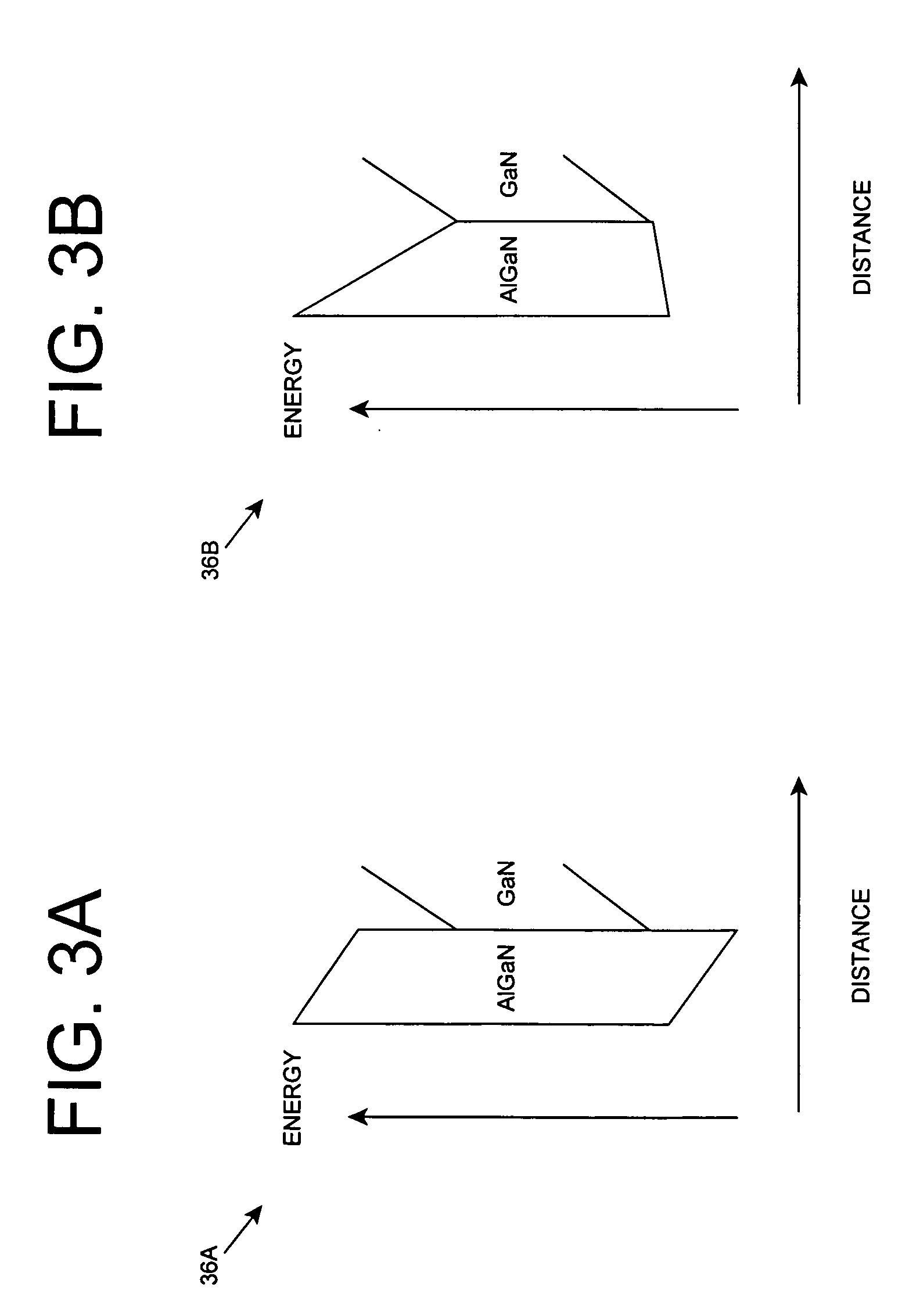Nitride-based light emitting heterostructure
a light-emitting heterostructure and nitride technology, applied in the direction of lasers, semiconductor lasers, solid-state devices, etc., can solve the problems of limited efficiency, poor efficiency of light generated by light-emitting structures, and the rapid degradation of the performance of nitride-based light-emitting diodes and lasers. to achieve the effect of improving one or more of their characteristics
- Summary
- Abstract
- Description
- Claims
- Application Information
AI Technical Summary
Benefits of technology
Problems solved by technology
Method used
Image
Examples
Embodiment Construction
[0027] It is understood that for the purposes of the present disclosure, Al means Aluminum, Be means Beryllium, C means Carbon, Ga means Gallium, In means Indium, Li means Lithium, Mg means Magnesium, Mn means Manganese, N means Nitrogen, O means Oxygen, and Si means Silicon.
[0028] As indicated above, the invention provides an improved nitride-based light emitting heterostructure. The nitride-based light emitting heterostructure includes an electron supply layer and a hole supply layer with a light generating structure disposed there between. The light generating structure includes a set of barrier layers, each of which has a graded composition and a set of quantum wells, each of which adjoins at least one barrier layer. Additional features, such as a thickness of each quantum well, can be selected / incorporated into the heterostructure to improve one or more of its characteristics. Further, one or more additional layers that include a graded composition can be included in the heter...
PUM
 Login to View More
Login to View More Abstract
Description
Claims
Application Information
 Login to View More
Login to View More - R&D
- Intellectual Property
- Life Sciences
- Materials
- Tech Scout
- Unparalleled Data Quality
- Higher Quality Content
- 60% Fewer Hallucinations
Browse by: Latest US Patents, China's latest patents, Technical Efficacy Thesaurus, Application Domain, Technology Topic, Popular Technical Reports.
© 2025 PatSnap. All rights reserved.Legal|Privacy policy|Modern Slavery Act Transparency Statement|Sitemap|About US| Contact US: help@patsnap.com



